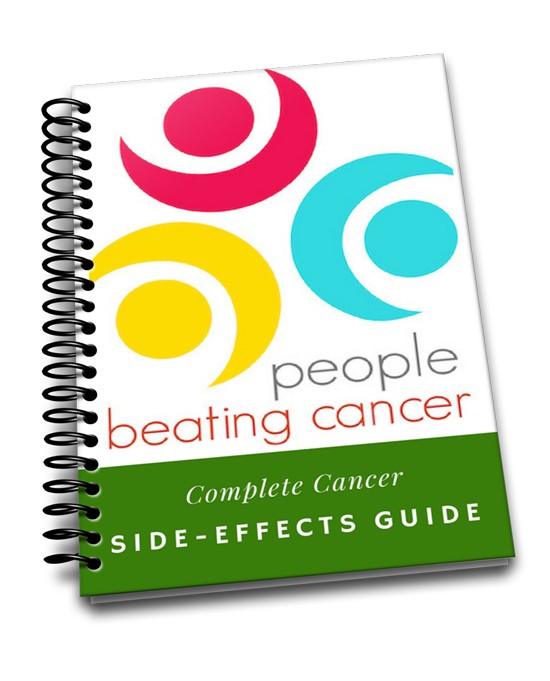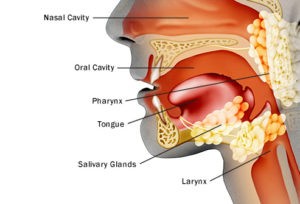- You are here:
- Home »
- Blog »
- non-conventional therapies »
- Metronomic Low-dose Chemo, Less Toxicity for Head & Neck Cancer
Metronomic Low-dose Chemo, Less Toxicity for Head & Neck Cancer

“However, patients who received the low-dose weekly regimen — commonly used in the United States — experienced considerably less toxicity”
You’ve been diagnosed with head and neck cancer of some kind. And you’ve heard about or witnessed the challenges that come with chemotherapy and/or radiation. And you would like to learn about chemo with evidenced-based therapies shown to enhance efficacy while reducing toxicity?
The studies linked and excerpted below are saying that head and neck cancer patients can undergo chemo (cisplatin) while managing possible side effects and increasing efficacy. Less toxicity means fewer short, long-term and late stage side effects. In effect the study documents the same overall survival with a higher quality of life.
Clinical trials are known to routinely down play toxicity’s side effects. So its important for cancer patients and survivors to learn about and understand how toxicity factors into their cancer treatment.
Studies indicate that more than one third of cancer patients change or discontinue their standard chemotherapy regimen because of side effects caused by toxicity. Reducing the FDA approved chemotherapy treatment regimen, by definition, reduces your overall survival.
There are a host of evidence-based, non-toxic therapies that have been shown to either to be cytotoxic (kill) head and neck cancer and/or enhance the efficacy of conventional chemotherapy regimens such as cisplatin. You can reduce how much cisplatin to undergo while at the same time enhancing the effectiveness of the cisplatin. You can follow other evidence-based therapies show to increase your overall survival.
Have you been diagnosed with head and neck cancer? What stage? What is your therapy plan? Scroll down the page, post a question or comment and I will reply to you ASAP.
Hang in there,
David Emerson
- Cancer Survivor
- Cancer Coach
- Director PeopleBeatingCancer
Recommended Reading:
- Grape Seed Extract-Inexpensive, Non-Toxic Head Neck Cancer Therapy
- Diagnostic test predicts outcome in head/neck cancer
- Curcumin Potentiates Chemo, Induces Apoptosis in Head and Neck Cancer
Metronomic chemotherapy: changing the paradigm that more is better.
“The knowledge acquired in the experimental field of metronomic chemotherapy, plus the increasing experience that is being obtained in the clinical setting, will help to lead a change in the design of therapeutic protocols against cancer…”
Study supports weekly low-dose cisplatin for advanced head and neck squamous cell carcinoma
“Patients with locally advanced head and neck squamous cell carcinoma who received weekly low-dose cisplatin with concurrent radiotherapy achieved the same survival as those who received standard high-dose cisplatin every 3 weeks plus radiotherapy…
However, patients who received the low-dose weekly regimen — commonly used in the United States — experienced considerably less toxicity…
Concurrent chemoradiotherapy is a key component of treatment for patients with locally advanced HNSCC who do not undergo surgery…
Bauml and colleagues retrospectively reviewed population-based data from the VA health system to assess outcomes of patients with stage III through stage IVB HNSCC who underwent definitive-intent chemoradiotherapy with either high-dose cisplatin (80 mg/m2 to 120 mg/m2) or low-dose cisplatin (30 mg/m2 to 50 mg/m2)…
The analysis included 2,901 patients, 2,200 of whom received high-dose cisplatin (mean initial dose, 100 mg/m2) and 701 of whom received low-dose cisplatin (mean initial dose, 40 mg/m2).
After researchers adjusted for propensity score, they observed no significant difference in OS with high-dose cisplatin (HR = 0.94; 95% CI, 0.8-1.04). However, patients who received the high-dose regimen appeared more likely to experience acute kidney injury, neutropenia, dehydration/electrolyte disturbance or hearing loss…
Curcumin–cisplatin chemotherapy: A novel strategy in promoting chemotherapy efficacy and reducing side effects
“The efficacy of chemotherapy in cancer therapy is limited due to resistance, treatment selectivity, and severe adverse effects. Immunotherapy, chemotherapy, targeted therapy, radiation, and surgery are the most common therapeutic strategies for treatment, with chemotherapy being the most successful.
Nonetheless, these treatments exhibit poor effectiveness due to toxicity and resistance. Therefore, combination therapies of natural products may be used as an effective and novel strategy to overcome such barriers.
Cisplatin is a platinum-based chemotherapy agent, and when administered alone, it can lead to severe adverse effects and resistance mechanism resulting in therapeutic failure.
Curcumin is a polyphenolic compound extracted from turmeric (Curcuma longa) exhibiting anticancer potential with minimal adverse effects.
The combination therapy of curcumin and cisplatin is a novel strategy to mitigate/attenuate cisplatin-related adverse effects and improve the barrier of resistance reducing unwanted effects.
However, there are uncertainties on the efficacy of curcumin, and more in depth and high-quality studies are needed. This review aims to explain the adverse effects related to individual cisplatin delivery, the positive outcome of individual curcumin delivery, and the combination therapy of curcumin and cisplatin from nano platform as a novel strategy for cancer therapy…”
Curcumin: A potentially powerful tool to reverse cisplatin-induced toxicity
“Curcumin is a naturally occurring polyphenol isolated from Curcuma longa that has gained considerable interest over the last decades due to its beneficial effects for human health.
- Moreover, the usage of cisplatin, a platinum-based chemotherapeutic, is associated with several adverse effects affecting the quality of life of the patients.
- Also, cisplatin therapy is jeopardized by a great challenge of resistance which reduces the efficacy of this drug.
In order to conquer these dark sides of cisplatin therapy, curcumin has been widely used to fight against cisplatin-resistant cancer cells and decrease its unwanted side effects (e.g. ototoxicity, nephrotoxicity and neurotoxicity). In this review, we provide a summary of the studies done to show the protective effects of curcumin against cisplatin failure and toxicity…”


